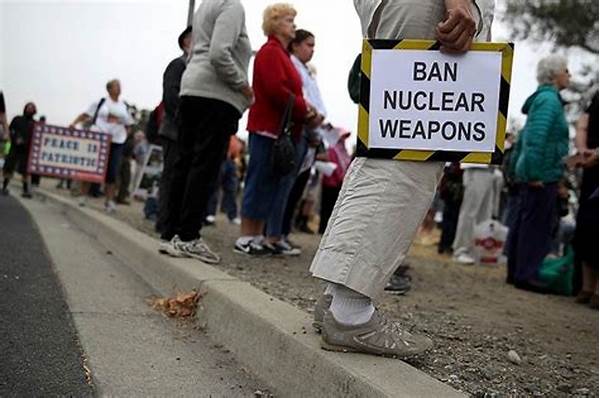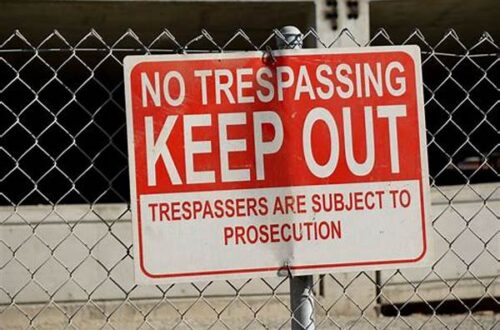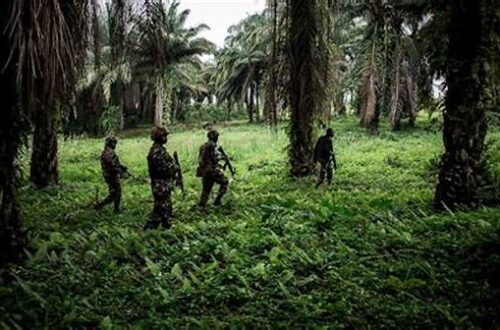In the contemporary world, the paramount challenge of maintaining international peace and security is underscored by the imperative of preventing nuclear weapons spread. As nations navigate the complex web of global diplomacy and defense, the proliferation of nuclear weapons presents a formidable threat to both regional stability and global safety. The international community, therefore, must engage in concerted efforts to curb this menace, ensuring that nuclear technology is harnessed only for peaceful purposes. This drive necessitates multilateral collaboration, robust policy implementation, and adherence to international treaties that bind nations to the mutual goal of nuclear non-proliferation.
The Necessity of Global Cooperation
Preventing nuclear weapons spread is an endeavor that cannot be pursued in isolation. It requires global cooperation and the collective will of all nations. International treaties like the Treaty on the Non-Proliferation of Nuclear Weapons (NPT) provide a pivotal framework for cooperation. The NPT, which holds non-proliferation as one of its three pillars, seeks to prevent the increase of nuclear weapons while encouraging the peaceful use of nuclear energy. Embedding such frameworks within national policies represents an essential step for countries committed to global security. Additionally, diplomatic engagement and dialogue among nations serve to foster an environment where mutual trust and transparency can flourish, thus reinforcing efforts to prevent nuclear weapons spread.
Strengthening international regulatory bodies like the International Atomic Energy Agency (IAEA) is essential in this regard. The IAEA plays a crucial role in monitoring nuclear activities and ensuring compliance with international standards. Its inspections and verification mechanisms are designed to deter any clandestine attempts at nuclear weapons proliferation. By supporting these regulatory frameworks and adhering to their stipulations, the global community can better work towards the common goal of preventing nuclear weapons spread.
Strengthening International Treaties
1. Strengthening international treaties is vital in preventing nuclear weapons spread. Ensuring compliance with existing agreements like the NPT and introducing new, more comprehensive treaties can reinforce global non-proliferation norms.
2. Multilateral diplomacy plays a critical role in preventing nuclear weapons spread. Diplomatic endeavors can address disputes and foster relationships that aid in building trust among nations, which is essential for effective non-proliferation efforts.
3. Regional disarmament initiatives are significant in preventing nuclear weapons spread. Encouraging nuclear-free zones and regional peace agreements contributes to reducing the overarching threat of nuclear proliferation.
4. Technological innovation impacts the global effort of preventing nuclear weapons spread. By harnessing advanced technology, nations can improve monitoring and verification processes, ensuring better compliance with non-proliferation treaties.
5. Public awareness and education are instrumental in preventing nuclear weapons spread. An informed public can advocate for stronger government policies and international cooperation, helping to sustain global non-proliferation efforts.
The Role of Technology in Non-Proliferation
The realm of technology holds both the potential to facilitate and mitigate the risk of nuclear weapons proliferation. As advancements in nuclear technology and scientific research continue, it is imperative that these developments are channeled safely to uphold the goal of preventing nuclear weapons spread. This responsibility rests firmly on the shoulders of governments, international agencies, and the scientific community. They must pursue rigorous research standards and transparency to ensure that nuclear technology embodies peaceful applications, such as in medicine and energy production, rather than contributing to an arms race.
Technological innovations also present new avenues for improving verification and monitoring processes. Enhanced satellite imagery, real-time data analysis, and increased surveillance capabilities enable regulatory bodies like the IAEA to enforce compliance more effectively. These technological advancements offer the necessary tools to bolster inspection regimes and detect any clandestine activities with higher accuracy. By integrating such technologies within the broader strategy of nuclear non-proliferation, the international community can enhance efforts in preventing nuclear weapons spread and maintain global peace and security.
The Economic Implications of Nuclear Non-Proliferation
1. Preventing nuclear weapons spread can lead to significant economic savings. Allocating resources to initiatives that foster disarmament and non-proliferation can divert funds from costly nuclear arms competitions to more productive areas.
2. Economic stability is linked closely to preventing nuclear weapons spread. A geopolitical landscape free of nuclear tensions provides a conducive environment for trade and investment, fostering economic growth.
3. Industries related to nuclear technology encounter regulatory challenges in preventing nuclear weapons spread. Adhering to strict international standards can facilitate partnerships and promote innovation.
4. The financial backing of international non-proliferation bodies is essential in preventing nuclear weapons spread. Funding supports their capacity to conduct effective monitoring and verification globally.
5. Businesses play a role in preventing nuclear weapons spread by ensuring that their operations are compliant with international non-proliferation frameworks. Participation in self-regulatory initiatives reflects a commitment to global security.
6. Investing in education about preventing nuclear weapons spread creates an informed workforce. Such education drives responsible scientific development and ensures a culture of compliance within relevant industries.
7. Preventing nuclear weapons spread aligns with sustainable development goals. By promoting peaceful uses of nuclear energy, countries can achieve economic development while ensuring that technology is not misused.
8. Economic sanctions can act as a deterrent in preventing nuclear weapons spread. They pressure nations that violate international agreements to return to compliance, safeguarding global non-proliferation norms.
9. Collaborative research in nuclear technology can aid in preventing nuclear weapons spread. Joint ventures between countries promote trust and ensure that technological advancements remain within peaceful bounds.
10. Preventing nuclear weapons spread requires long-term economic planning. Nations must align their economic policies with non-proliferation goals to ensure sustained peace and stability.
Diplomatic Strategies for Non-Proliferation
Preventing nuclear weapons spread is contingent upon effective diplomatic strategies that prioritize international dialogue and cooperation. Diplomats play a pivotal role in negotiating treaties and agreements that set international standards for nuclear disarmament and non-proliferation. Through their efforts, countries can resolve disputes and build frameworks for mutual trust. Diplomatic engagement at multilateral platforms such as the United Nations provides opportunities to address the concerns of all nations and forge consensus on non-proliferation measures.
Furthermore, bilateral agreements between nations holding nuclear capabilities can serve as milestones in nuclear disarmament and non-proliferation efforts. Such treaties are instrumental in setting precedents that other countries can emulate, advancing the global objective of preventing nuclear weapons spread. Cultural and educational exchanges complement these diplomatic efforts by promoting a shared understanding of the significance of nuclear non-proliferation. By fostering a global culture that values peace and security, the international community can sustain momentum in the continued pursuit of preventing nuclear weapons from spreading.
Education and Public Awareness
Education and public awareness form the backbone of efforts aimed at preventing nuclear weapons spread. Through education, individuals can acquire a comprehensive understanding of the risks associated with nuclear weapons and the necessity of global non-proliferation. This knowledge empowers individuals to participate in advocacy, influencing policy decisions at local, national, and international levels. Educational institutions play a crucial role in instilling values of peace and security among students, ensuring that future generations remain committed to the principle of nuclear non-proliferation.
Public awareness campaigns complement educational efforts by reaching a wider audience and informing them about the importance of preventing nuclear weapons spread. Such campaigns can utilize various media platforms to disseminate information effectively, engaging the public through documentaries, articles, and social media. By cultivating an informed and proactive citizenry, these initiatives contribute to the strengthening of global resolve against nuclear proliferation. In an interconnected world, the engagement of an educated public is indispensable for sustaining the momentum toward a nuclear-weapons-free future.
Summary
Preventing nuclear weapons spread remains a pivotal task in ensuring global peace and stability. It involves a multifaceted approach encompassing diplomatic, technological, economic, and educational strategies. The international community must remain steadfast in its commitment to curb the proliferation of nuclear weapons through robust policy frameworks and active participation in international treaties. Diplomatic strategies play an essential role in this process, as they facilitate dialogue, negotiate standards, and foster international cooperation in the realm of nuclear non-proliferation.
Additionally, the integration of technological innovations enhances verification and compliance, reinforcing efforts to maintain nuclear disarmament. Economic implications also underscore the significance of preventing nuclear weapons spread, as resources can be channeled towards developmental goals rather than military build-ups. Ultimately, education and public awareness initiatives serve as the foundation for sustaining these efforts, empowering individuals to advocate for a nuclear-weapons-free world. By embracing these principles, the global community can strive towards a future characterized by peace and mutual security, free from the threat of nuclear proliferation.





